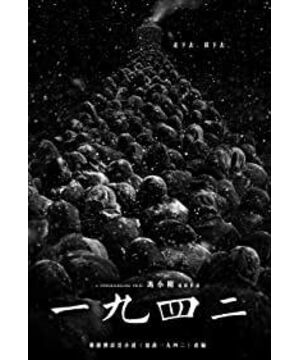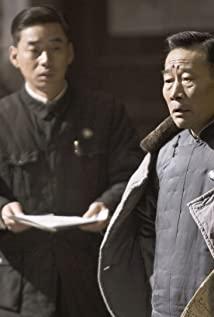So let me talk about this difference first, and then talk about the reasons for this difference in my opinion.
If you want to bring the evaluation of "1942" to a higher level, I think first of all, please Feng Xiaogang, please prepare a piece of theme music that can become a classic before shooting. "1942" has no one from beginning to end. Decent background music to set off, the multi-line narrative structure is scattered, only when Huazhi and Shuanzhu change their cotton pants, is it too abrupt.
Secondly, please don't use Fan Wei for this kind of film. You must make fun everywhere. You are shooting a historical theme, and it is still a heavy historical theme. Why do you have to force Fan Wei to press it? Insert, Fan Wei is really good at skills in recent years, what is the great cause of founding a country, if you are the one, the golden robbery, it only takes less than 3 minutes to make the corner of your mouth rise. In "1942" Feng Xiaogang gets a circuit court, what else can the plot play besides being funny? I came here with a heavy heart, why do you have to make me laugh?
Third, I really don’t know how Feng Xiaogang grasps the psychology of the characters. Contradictions, in addition to contradictions or contradictions, it is reasonable to say that the little Japan should be more insensitive than the Nazis. When I saw the Japanese officer stabbed Shuanzhu to death, I I suddenly remembered that in "Xin", the German officer shot the female college student architect, and the old man with the short arm. The killing of the German officer from beginning to end was expressionless. The director would not give that girl college student or that old man a close-up, nor They don't specifically explain their pre-death psychology. The director just takes the camera far away, and then they die in the background. It's that simple. The relationship between the master and the master, the more it can highlight how insignificant these beings are.
There is also the contrast between the relationship between the old club and his tenants, all of which are said by Zhang Guoli and Huazhi. For example, Zhang Guoli said: People came out to flee, we are fleeing disasters. And what Huazhi said: let them beg us to relieve their anger! In addition, I can't see any contrast. Besides, in "Xin", the rich people in the Jewish people change from rich to poor, from poor to life and death. The director has given a detailed and impressive description. .
In the whole film of "1942", this kind of psychology is always between wanting to kill and not wanting to kill, taking it seriously and not taking it seriously, which is confusing.
So what caused this result, I think China's moderation since ancient times is the biggest reason for this. Feng Xiaogang is accustomed to the fact that there must be laughter and scolding in movies, and Chinese directors are used to the deliberate description of life and death in blockbuster films. After all, Chinese people take themselves seriously and the facts require you to deliberately not take them seriously. The psychology of watching as a human makes the whole movie full of two words: hypocritical.
On the one hand, the old owner thought that he was superior to others, but on the other hand, he wanted to show his sympathy for the sake of face, so he gave the tenant a bowl of millet.
On the one hand, Chiang Kai-shek was worried about the drought, and on the other hand, he deliberately forced himself to be insensitive.
On the one hand, Feng Xiaogang wanted to make an epic national disaster, to play the role of God and lead the audience to examine life, and on the other hand, he tried his best to stand with the toiling masses.
Since ancient times, China has been the middle way, not going to extremes, just wandering in the middle, and only hypocritical stories, hypocritical characters and hypocritical directors will be born. In the end, the audience is entangled with themselves, and in the end, this entanglement is regarded as moving.
that is it.
View more about Back to 1942 reviews










